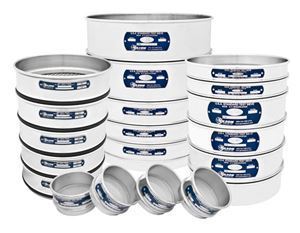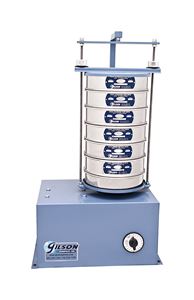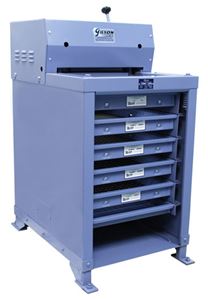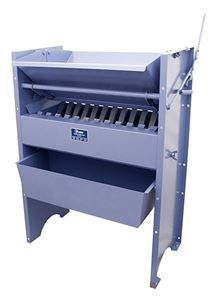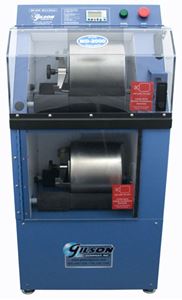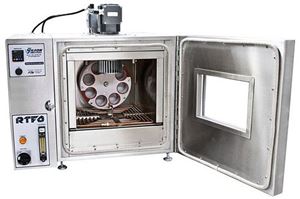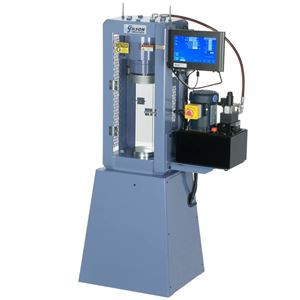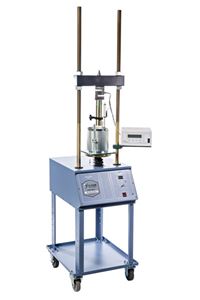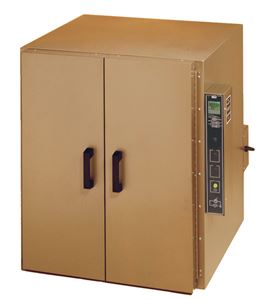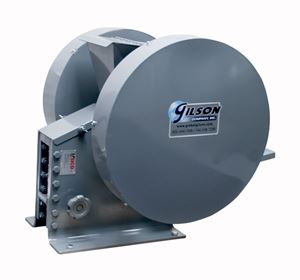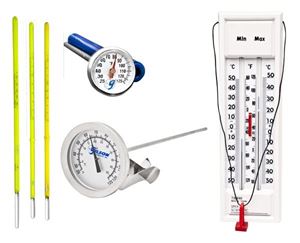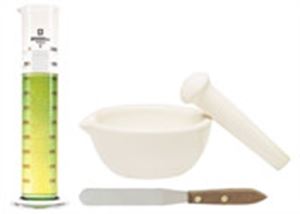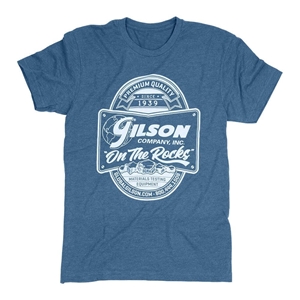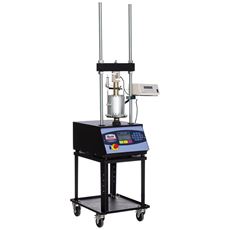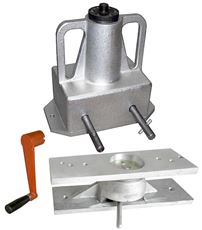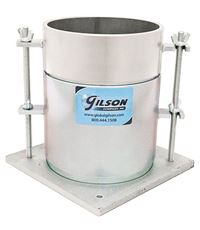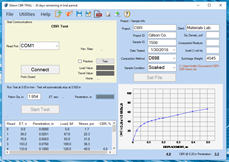- Log in
- Favorites List
-
Shopping Cart
You have no items in your shopping cart.
CBR Test Equipment
California Bearing Ratio (CBR) and Limerock Bearing Ratio (LBR) tests yield relative strengths of soils and base course materials based on penetration resistance. CBR values can be determined under laboratory or field conditions, while the LBR test is performed only in the laboratory.

In the lab, soil specimens with specific moisture contents are compacted into molds. Sample preparation prior to testing may include soaking and the addition of surcharge weights to the molded specimens. The penetration test is carried out in a Load Frame outfitted with a Penetration Piston and other CBR test components.
CBR Field Tests measure the strength of in-place soils and base course materials, providing valuable information to pavement designers while maintaining ASTM D1883 and AASHTO T 193 standards. Field tests are run by forcing a Penetration Piston into the soil with a gear-driven Jack at the test site and comparing the depth of penetration to the load. Typically, the Jack is braced against a heavy piece of equipment used for a reaction load, such as a loaded dump truck.
The Florida Limerock Bearing Ratio (LBR) FM 5-515 laboratory test was developed to evaluate limerock and other soils used for the base, subgrade, and embankment materials typically found in Florida. This test method shares much of the same equipment and procedures used with the laboratory CBR test.
Gilson offers a complete line of laboratory and field equipment for California Bearing Ratio (CBR) testing and laboratory equipment for the Florida Limerock Bearing Ratio (LBR) test.
- CBR Lab Equipment includes customizable Load Frames fitted with components to perform CBR or LBR Tests. Frames can also be outfitted with a variety of components for other soil testing applications. In addition, our selection of CBR lab testing products includes Molds, Spacer Discs, Swell Plates, Surcharge Weights, and other accessories to test laboratory-prepared soil samples.
- CBR Field Equipment consists of CBR Field Jacks, Load Rings, Surcharge Plates, and Penetration Pistons to provide penetration data from in-situ field tests.
- LBR Equipment is similar to CBR laboratory test equipment but uses unique Compaction Molds and Spacer Discs.
- CBR/LBR Data Acquisition Software works with the HMA-685D CBR/LBR Digital Component Set to record specimen information and display real-time test data, calculate results, then prepare reports following ASTM and AASHTO requirements.
For more information on CBR Test Equipment, here are our related blogs:

